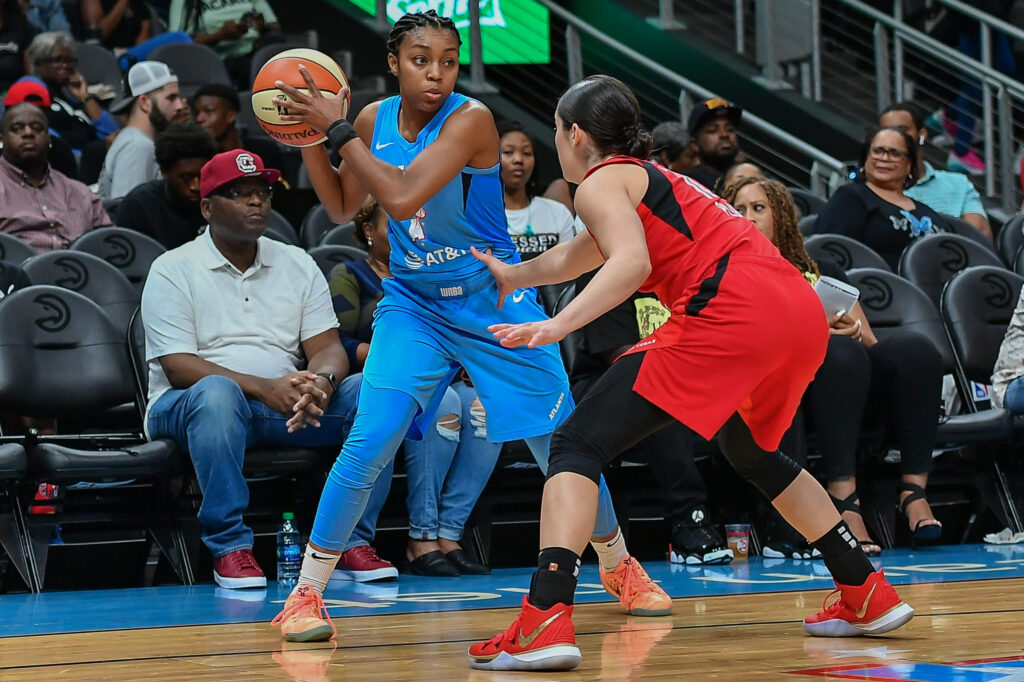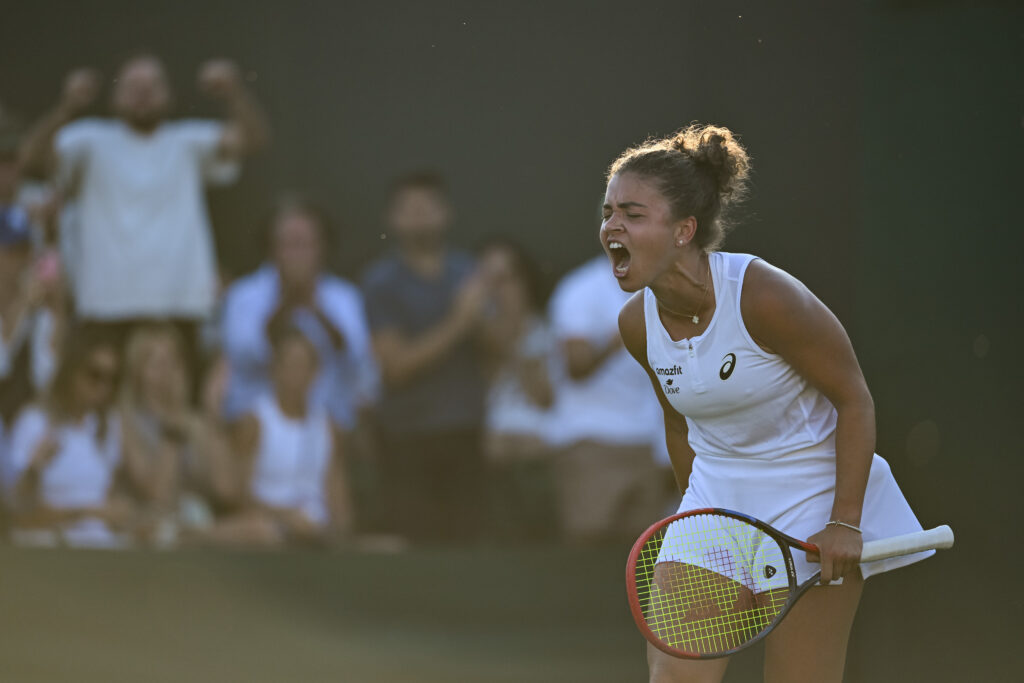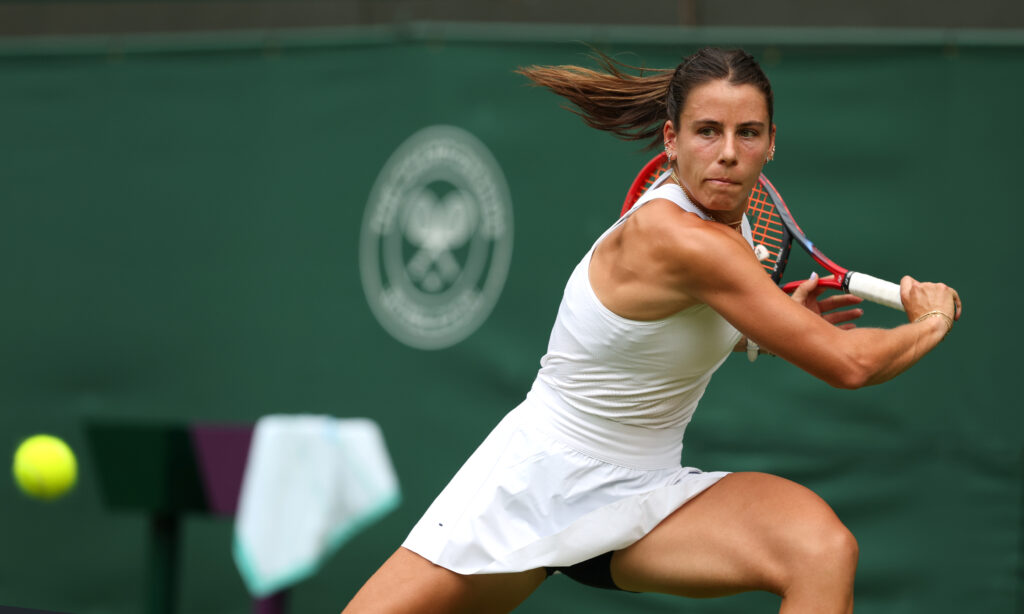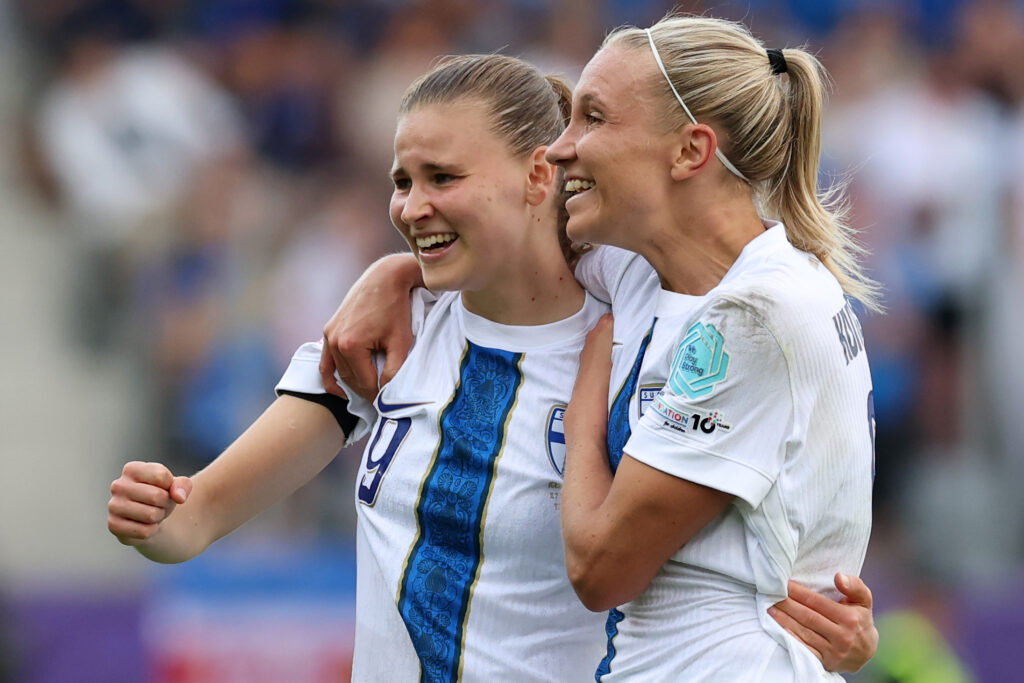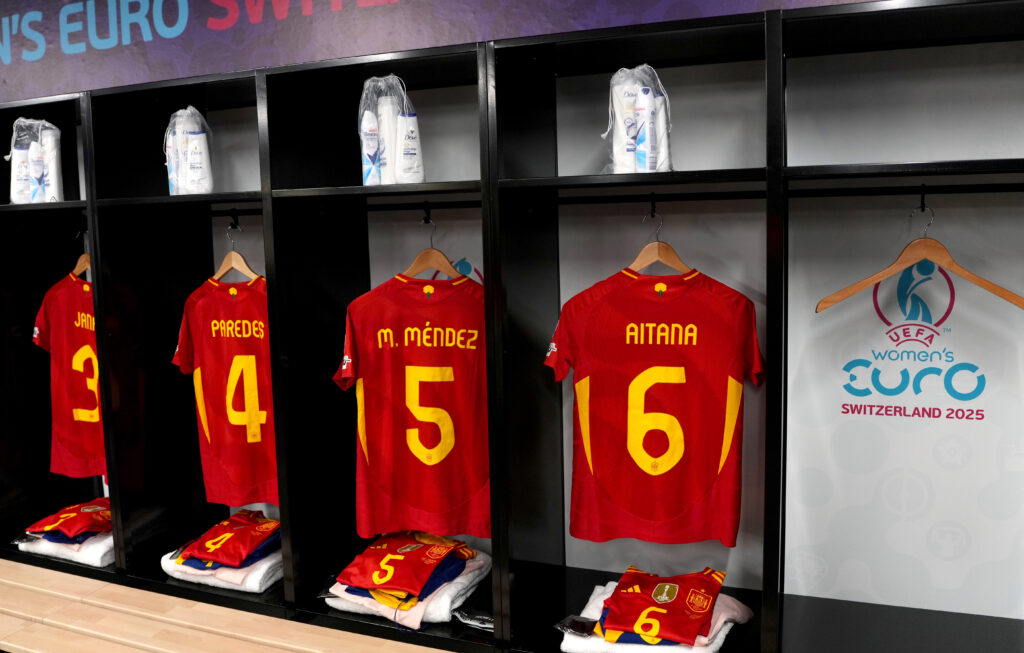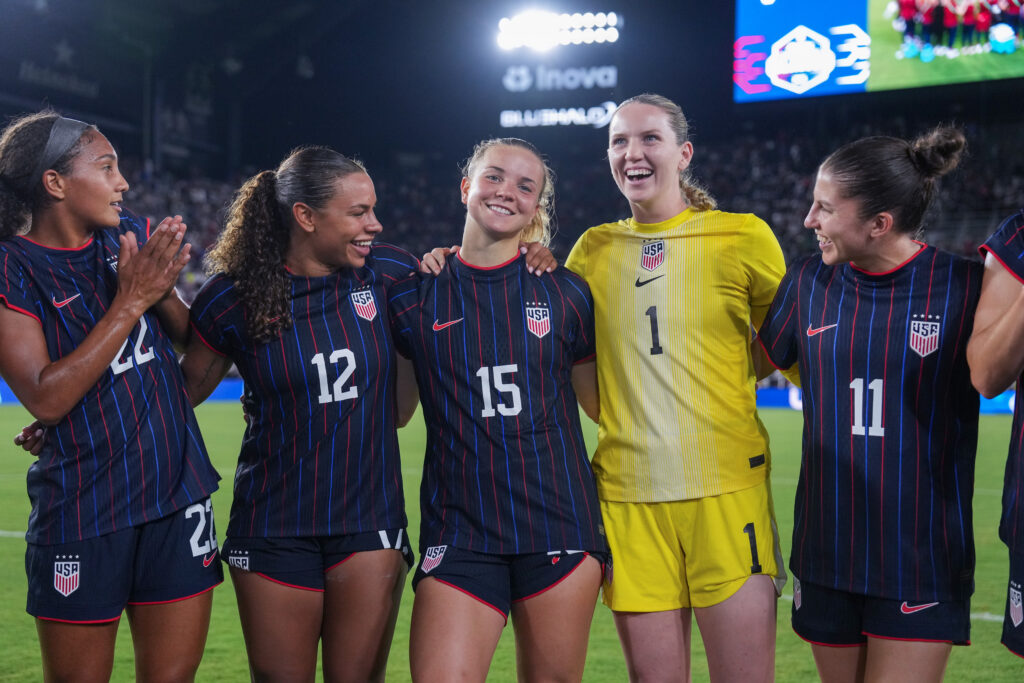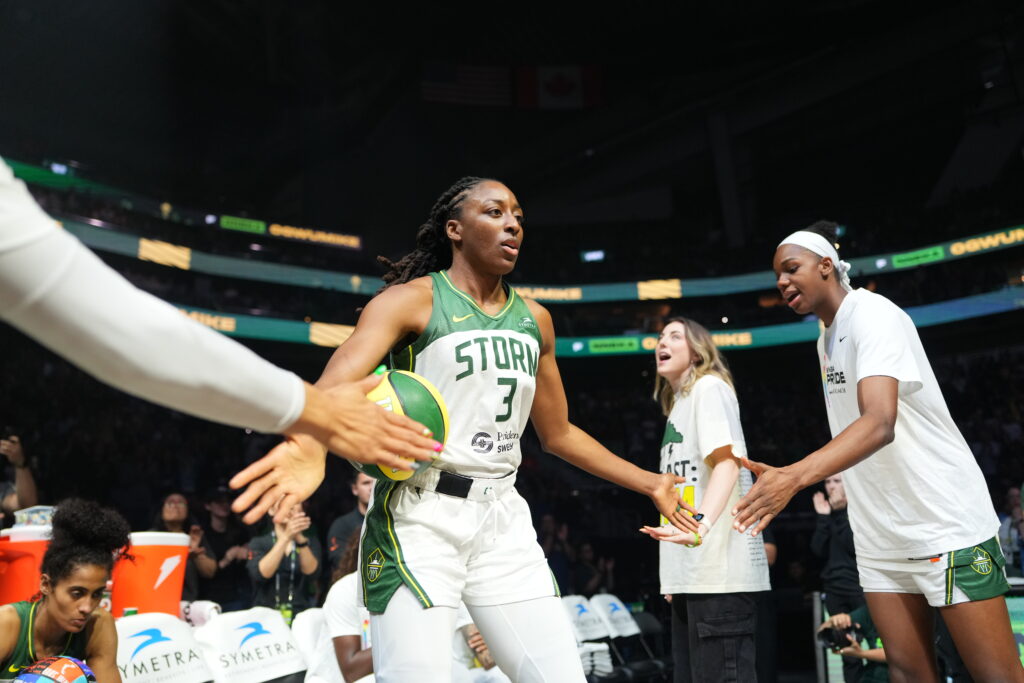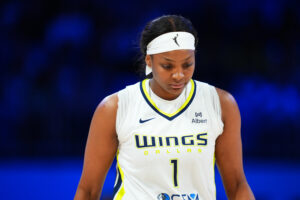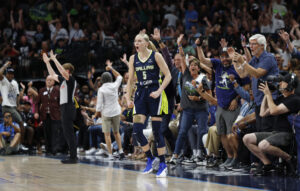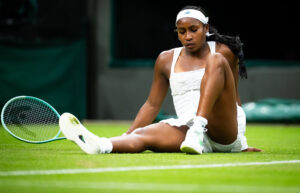Renee Montgomery is a point guard for the Atlanta Dream of the WNBA. Following the police killing of George Floyd, Montgomery announced she was opting out of the upcoming WNBA season in order to focus on social reform. She spoke with Just Women’s Sports about what went into that decision, and how she plans to use her platform to drive real change.
You announced that you are opting out of the 2020 WNBA season in order to focus on social reform off the court. What was the motivation behind your decision?
As you know, there was a string of murders — Breonna Taylor, Ahmaud Arbery and then George Floyd. Once George Floyd was murdered, you could see that America reacted. The world reacted. I reacted, too. I think we are all just tired. We are tired of seeing this. We are tired of the same story. We know how it ends. The movement happened because, like me, everyone is tired.
After much thought, I’ve decided to opt out of the 2020 WNBA season. There’s work to be done off the court in so many areas in our community. Social justice reform isn’t going to happen overnight but I do feel that now is the time and Moments equal Momentum. Lets keep it going!
— Renee Montgomery (@ReneeMontgomery) June 18, 2020
What prompted you to focus specifically on social reform during this time?
I started to think about all of the problems within the system. It’s not just police brutality. We have problems in the prison system, too. And, then, I thought about the educational aspect of it. A lot of people are latching onto my story — they understand my decision because they know my story. That’s why I want to go into education reform because I believe that if people know more, they will understand more, and they will be more sympathetic.
Were your coaches supportive of your decision to opt out?
Absolutely. They were surprisingly supportive in that basketball is a business and I was talking to them about something that could upset their jobs. But they took it in stride. And they actually ended up making Juneteenth a paid holiday. They didn’t only say that they were going to support me, but they actually acted on it.
A couple of other players have chosen to not play in the 2020 season for a mix of reasons, such as COVID and fighting for social reform. What do you think about other players choosing to opt out?
I love that athletes now have a choice on what they want to do. Whether they opt out for COVID reasons, or because they just don’t want to leave family members, or because they have any other reason, it’s the athlete’s choice, and I’m happy to see that athletes now have that option. If you want to opt in and you want to play, that’s your choice as well and, by all means, do that.
What more do you think the WNBA can do to support their Black athletes and important movements like Black Lives Matters?
I think it’s important that they listen. Listen to what the players want to do. Listen to the ideas that the players have. A lot of the players in the WNBA are not new to taking a stand. We’re not new to making a statement. So now the league needs to listen and follow the players’ lead.
Historically, the WNBA is a pretty progressive league. A lot of players fight on the forefront of different social issues and, this time around, players are sacrificing their craft for change. Why do you think that is?
I think Candace Parker is the one who told me that we’re the majority of the minority in the WNBA. The league is 80% minority and, when it comes to sexual orientation, we have a lot of players in the LGBTQ community. So, we are the majority of the minority. I think understanding that and living that in our everyday lives makes us, as players, more vocal — it inspires us to take a bigger stand.
When you were making the decision to opt out, did you have any concerns that you would lose some of your platform by not playing?
Absolutely. Every time I went on an interview that was the first question they would ask me. I understand what Caron Butler meant when he said that there is a difference between ‘former athlete’ and ‘current athlete.’ When you walk into a room, people look at you and talk to you differently if you are a current athlete than if you are a former athlete. I understand that and I’m fine with it because if I lose my basketball platform, it doesn’t mean that I’ve lost my voice.
Why do you think it’s important for athletes in particular, whether former or current, to speak out about social injustices?
I think that now everything should be generational in the sense that you don’t want the next generation to have as many hashtags as our generation has. You don’t want the next generation to have to deal with the politics that we have to deal with. You don’t want the next generation to go to school and not learn a part of their history. Everything we do now should focus on that. Athletes aren’t just tasked with being role models, we are tasked with helping the next generation. People inside the bubble are going to use their platform just as people outside the bubble are going to. It’s important that we continue thinking of the next generation.
Renee Montgomery and the @RMFnonprofit hosted a pop-up #Juneteenth block party and handed out meals to the community in downtown Atlanta today ✊ pic.twitter.com/YeGGMdFVWG
— Atlanta Dream (@AtlantaDream) June 20, 2020
You started the Renee Montgomery Foundation and recently held a celebration of Juneteenth. Can you tell us more about your foundation and your fundraising efforts?
The mission statement of my foundation is to spread positivity and to teach people using skills I learned in sports — i.e. confidence, teamwork, discipline. My foundation is an extension of me. I took my foundation’s mission of spreading positivity and I went out and showed how I can be a good teammate. By deciding to opt out of the WNBA season because I felt that it was the best decision for me, I showed how to be confident.
For Juneteenth, I wanted to throw a feel-good event because there has been a lot of sadness recently. We just watched these murders on TV. I was thinking about what holidays were coming up and Juneteenth seemed perfect. I realized, though, that a lot of people don’t even know what Juneteenth is. I named my event, “What is Juneteenth?” Not only was it a pop-up block party celebration, but it was also an educational process. Everyone knows about the Emancipation Proclamation. A lot of people don’t know that all of the slaves weren’t freed until two years later. So, not only was the event a party and we had fun, but a lot of people left understanding more.
There is a lot going on right now, but what is next for you in terms of basketball and your foundation?
I’m not going to play in the WNBA because the season is so time consuming, but I will still be working and doing different things. That doesn’t mean that I’m only going to be working on social reform. You might see me on TV calling a game or you might see me on TV talking about social reform. I’m still going to be involved in basketball while also helping push the movement forward.
